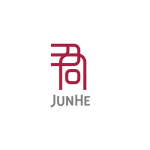REGULATORY FRAMEWORK
1.1 What is the applicable legislation and who enforces it?
The Anti-Monopoly Law of the People's Republic of China (AML) is the law applicable to merger control review. It was enacted by the National People's Congress on August 30 2007 and came into effect on August 1 2008. The merger control legal regime consists of the AML, the Regulations on the Notification of Concentration of Business Operators (Thresholds Regulations) and a set of ministry-level rules and guidance opinions.
The Ministry of Commerce (Mofcom) is the regulator responsible for merger control review in China and its Anti-Monopoly Bureau (AMB) is the authoritative department within Mofcom.
JURISDICTIONAL TEST
2.1 What types of mergers and joint ventures (JVs) are caught?

Under the AML, any of the following will be deemed a concentration of business operators: a merger; an acquisition of control of another party through an asset or equity acquisition; and possession of control or decisive influence over another party by contract or otherwise.
According to Article 4 of Mofcom's Guidance on Notification of Concentration of Business Operators, a newly-established joint-venture (JV) which is jointly controlled by two or more business operators constitutes a concentration of business operators. If a JV is under sole control by one business operator, it will not be regarded as a concentration.
Mofcom does not differentiate between a full function and a non-full function JV, so as a result a special purpose holding company would not necessarily be exempt from the notification obligation.
2.2 What are the thresholds for notification, how clear are they, and are there circumstances in which the authorities may investigate a merger falling outside such thresholds?

It is mandatory for business operators to obtain clearance from Mofcom for their proposed concentration if they meet either of the following turnover thresholds:
the combined worldwide turnover of all the business operators concerned in the preceding financial year is more than RMB10 billion ($1.45 billion), and the nationwide turnover within China of each of at least two of the business operators concerned in the preceding financial year is more than RMB400 million or
the combined nationwide turnover within China of all the business operators concerned in the preceding financial year is more than RMB2 billion, and the nationwide turnover within China of each of at least two of the business operators concerned in the preceding financial year is more than RMB400 million.
As for financial institutions, under the Measures for Calculating Turnover of Financial Institutions in Concentration of Undertakings, only 10% of their turnover (after sales tax and other charges) is taken into account for the merger review turnover tests.
Under the Thresholds Regulation, Mofcom has the power to initiate an investigation over a transaction even if it does not reach the notification thresholds, as long as Mofcom believes that such concentration has or may have the effect of eliminating or restricting competition. So far, except for Didi Chuxing's acquisition of Uber China, which is claimed by the parties to be outside of the thresholds but currently under Mofcom's investigation, we have not seen this kind of precedent.
2.3 Are there circumstances in which a foreign-to-foreign merger may require notification, and is a local effect required to give the authority jurisdiction?

Foreign-to-foreign transactions (mergers, acquisitions and JVs) will require notification so long as they constitute concentrations and meet the thresholds. There is no local effects test and China merger control may apply in the absence of a substantive overlap.
PRE-NOTIFICATION AND FILING
3.1 Is filing mandatory or voluntary and must closing be suspended pending clearance? Are there any sanctions for non-compliance, and are these applied in practice?

The merger control filing in China is mandatory and the concentration shall not be implemented without Mofcom clearance.
If the undertakings in a notifiable transaction implement the transaction prior to Mofcom clearance, they may face the following sanctions: an order to cease implementing the concentration; an order to unwind the transaction within a prescribed time period; or a fine up to RMB500,000.
In practice, Mofcom has investigated various cases on reportable transactions which have failed to notify with Mofcom or been implemented prior to the Mofcom clearance. Up to November 2016, Mofcom has published eight cases where fines were imposed. In addition, given Mofcom's other roles in supervising foreign investment, the reputational damage of a failure to notify may have detrimental effects on a company's practical ability to do business in China.
3.2 Who is responsible for filing and what, if any, filing fee applies?

In a merger, all parties to the merger are obliged to file. For other types of concentrations, business operators who will acquire control or the ability to exercise decisive influence over other business operators (including the JV) are responsible for filing. No filing fee is required.
3.3 What are the filing requirements and how onerous are these?

The notifying party is required to submit filing materials in a standard format by filling a Merger Control Filing Form. The information required in the form is rather extensive, including but not limited to general information about each party to the concentration; a summary of the proposed concentration (including background and key steps of the transaction and executed transaction documents); a market definition (product and geographic market); an industry overview (in relation to the relevant market); and a competitive assessment of concentration, suppliers and customers information and competitors' information.
All the required information should be included unless the parties can persuade Mofcom that the information is not applicable to a specific case.
3.4 Are pre-notification contacts available, encouraged or required? How long does this process take and what steps does it involve?

Pre-notification contacts are available but not required. There was a pre-notification consultation division in the AMB but now all the three divisions responsible for reviewing filings are open for the parties' application for pre-notification consultation.
Based on our experience, whether a pre-notification consultation is needed depends very much on the complexity of the proposed transaction. If the parties are fairly clear on the major issues in the filing, we would not recommend pre-notification discussions with Mofcom as such consultation meetings may make parties spend extra time to obtain clearance. However, if the proposed transaction is complex and there are issues needing early clarification from Mofcom, a pre-notification consultation is advisable so that the parties may be assured of Mofcom officials' views on the issues concerned.
Mofcom does not accept anonymous consultation applications. The brief information about the transaction parties, the transaction, the products involved and the questions to be asked is required to be submitted to the regulator to apply for a pre-notification consultation. It usually takes a couple of days to one week for Mofcom to confirm the meeting, the timing of which will depend on the nature and complexity of the transaction and the availability of the relevant officials.
Opinions issued by Mofcom officials in the pre-notification process are made on a case-by-case basis and are not legally binding.
CLEARANCE
4.1 What is the standard timetable for clearance and is there a fast-track process? Can the authority extend or delay this process?

The AML provides for a 30-calendar day phase I review period followed by a 90-calendar day phase II review period (if deemed necessary by Mofcom). The review period may be extended for another 60-calendar days (phase III) under certain circumstances. In cases where the review cannot be completed within phase III, the filing may need to be withdrawn and re-filed (not a compulsory requirement under the AML).
Since mid-2014, a simplified procedure is available to the transactions that satisfy certain market share thresholds or fall within certain circumstances. A simplified procedure filing will go through a ten day public comment period and usually be cleared in phase I although the clearance timing is not specified as a rule.
However, a notification in a simplified procedure does not differ significantly from that in a normal procedure, in that, while the information relating to demand and supply structure, market entry, horizontal and vertical cooperation agreements and possible efficiencies can be skipped, the documentary burdens on corporate information and detailed share information and competitive assessment have been retained.
According to Mofcom, nearly all simple cases in 2015 are cleared in phase I review period, but a few cases placed on the simple track have faced extended review.
4.2 What is the substantive test for clearance, and to what extent does the authority consider efficiencies arguments or non-competition factors such as industrial policy or the public interest in reaching its decisions?

The AML as supplemented by a Mofcom rule specifies the substantive test for clearance including market shares and market control power of the undertakings concerned, concentration levels of relevant markets, impact of the concentration on market entry, technological development, consumers and other relevant operators and impact of the concentration on national economic development.
Efficiencies are considered but we are not aware of any mergers involving high market shares being cleared because the impact on competition is outweighed by post-merger consumer benefits arising from efficiencies. Market share or market control power and market concentration levels appear to be the most important factors in Mofcom's competitive assessment.
Industry policy and public interest are factors to be considered under the AML. In some cases, these non-competition factors may be decisive factors in reaching Mofcom decisions or causing significant delay to the review process.
4.3 Are remedies available to alleviate competition concerns? Please comment on the authority's approach to acceptance and implementation of remedies.

Structural, behavioural or hybrid remedies are available and acceptable to Mofcom.
The remedy negotiation can be commenced at any stage of the review process. After the parties put forward a remedy proposal, Mofcom will assess the same and negotiate with the parties, during which, Mofcom may reach out to third parties for assessing whether the remedy proposal is viable and sufficient to remove the competition concerns.
In case of divestment, Mofcom has a standard approach to the terms and conditions to be applied, for example Mofcom normally requires a trustee to assist in implementing the remedies. Up until now, Mofcom has accepted up-front buyer approach in two cases with structural remedies although the AML and Mofcom rules have no clear provisions in this regard.
Our observation is that, as Mofcom has gained more experience, it tends to prefer structural remedies over behavioral, unless no structural remedy is viable.
RIGHTS OF APPEAL
5.1 Please describe the parties' ability to appeal merger control decisions – how successful have such challenges been?

Undertakings have the right to appeal decisions by applying for an administrative review (by Mofcom again) and/or an administrative litigation (the Beijing Second Intermediate Court as the first instance court and the Beijing High Court as the appellate court). To date there have been no such challenges.
YOUR JURISDICTION
6.1 Outline any merger control regulatory trends in your jurisdiction.
From a legislation aspect, it is expected that Mofcom may promulgate amended rules on its review of notification and new rules on investigation of concentrations which are below the notification thresholds but are likely to have anti-competitive effects. Such legislation progress will provide more transparency and predictability on Mofcom's AML enforcement.
We have seen a great improvement in the review timeline, especially in simplified cases. As Mofcom has gained more experience, timelines in simplified cases may be further shortened. However, due to the limited hands in AMB, we cannot foresee how the timeline can be significantly shortened either for simplified or normal procedure cases.
We have also seen increasing dialogues between Mofcom and competition agencies in other jurisdictions, especially the EU and US. We believe the close international cooperation would be very helpful for those global transactions which require global clearance around the same time period or the aligned remedies.
About the author |
||

|
|
Yingling Wei Partner, JunHe Beijing, China T: +86 10 8519 1380 F: +86 10 8519 1350 Yingling Wei is a partner of JunHe and the head of JunHe's antitrust and competition practice group. Her main practice areas are anti-trust and competition, mergers and acquisitions and private equity investment. Since the PRC Anti-Monopoly Law came into effect, Wei has represented various multinational and Chinese companies in their merger control filings, State Administration for Industry and Commerce (SAIC) or National Development and Reform Commission (NDRC) investigations, providing Anti-Monopoly Law (AML) advice on cartels, resale price maintenance (RPM) and AML compliance issues. Wei has also been invited by the PRC AML enforcement agencies to participate in the formulation of a variety of regulations, resulting in her broad and in-depth understanding of the agencies' rules and practices. Wei has extensive experience in financial institutions and the real estate, energy, telecommunications, retail, automobile, hi-tech and traditional manufacturing industries, and represents various multinational and Chinese companies, investment banks and private equity funds in their merger and acquisition transactions. |
About the author |
||

|
|
Mingfang Gong Senior associate, JunHe Beijing, China T: +86 10 8553 7645 F: +86 10 8519 1350 Mingfang Gong is a senior associate in JunHe's antitrust practice team. Gong's practice focuses on Chinese competition issues relating to mergers and acquisitions, joint ventures, horizontal and vertical arrangements and antitrust investigations. Gong has extensive experience in advising clients on merger control filings, covering a broad range of industry sectors including IT, chemicals, consumer products and retail, energy and natural resources, semiconductor and healthcare. She also provides legal advice in relation to antitrust investigation and compliance advice in clients' day-to-day business operations. Gong joined the JunHe Beijing office in May 2010. Prior to joining the firm, Gong worked for the Ministry of Commerce from August 2007 to April 2010. Gong is able to offer clients advice drawn from rich experience as both a regulator in China and as a practitioner. |

